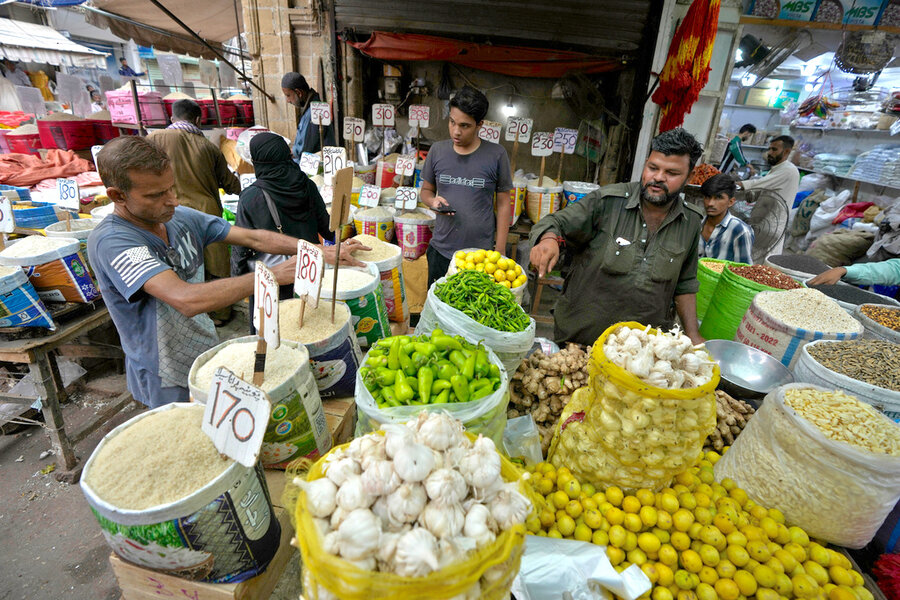Red ink, fair taxes: Pakistan tackles both
Loading...
With global public debt hitting a record $92 trillion last year, it is worth noting what is happening at Pakistan’s agency for tax enforcement. To assist homeowners in being honest about their taxes, the agency plans to increase the appraised value of homes by 13% to 15% in August – part of a plan to increase total tax revenue by nearly a third. For one of the world’s most debt-burdened nations, this is the latest effort to curb one of Pakistan’s more corrupt practices – tax avoidance, including below-market house appraisals.
It is also an example of the many reforms that the South Asian country has lately promised in order to receive loans from the World Bank and International Monetary Fund (IMF) to avoid a debt default.
With a debt burden close to the size of its economic output, Pakistan loses an estimated $3.6 billion a year to tax evaders – enough to be free of foreign debt if the money stayed in the system. The “whole nation has to move towards a tax culture,” Ahsan Iqbal, a top economic minister, said after the IMF approved a $3 billion rescue loan for Pakistan on July 12. “Everyone has to stop tax evasion.”
Nearly half of humanity, or about 3.3 billion people, live in countries that spend more on paying back debt than on funding education or health care, according to a new United Nations report. To reduce Pakistan’s debt, warned IMF Managing Director Kristalina Georgieva in February, “those that are making good money ... need to contribute to the economy” by paying their taxes.
The IMF, which is the world’s lender of last resort for countries in financial crisis, has only recently begun to consistently attach anti-graft conditions on its loans. Its latest loan to Pakistan, for example, includes a plan to curb theft in the power sector. When the IMF began to focus on corruption in 2018, then-IMF Managing Director Christine Lagarde said the effort would help “harness the immense power of sunlight to put the global economy on a healthier and more sustainable path.”
Pakistan has been receiving IMF help since 1958. Prime Minister Shehbaz Sharif says he prays this latest loan will be the last one, adding, “It is my faith that Pakistan will progress and no one can stop it.”





